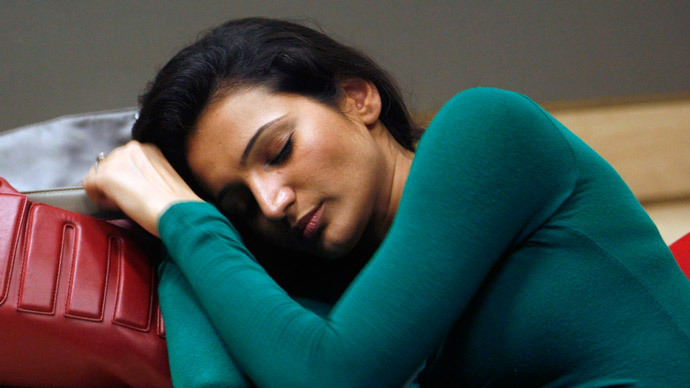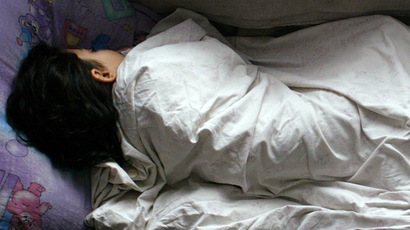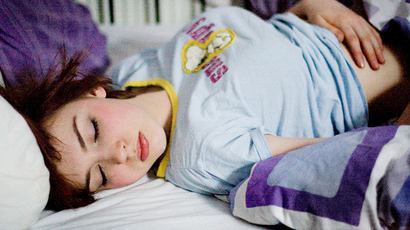‘Sleeping Beauty’ syndrome: British woman sleeps 22hrs per day

An extremely rare illness that causes sufferers to sleep for up to 22 hours a day has afflicted a young woman from Stockport, Greater Manchester. During episodes which can last weeks at a time, Beth Goodier is awake for only two hours each day.
The 20-year-old suffers from Kleine-Levin Syndrome (KLS), also known as ‘Sleeping Beauty’ syndrome.
“I spend half of my life in bed,” Goodier said on BBC Breakfast on Monday. “The onset for most people is adolescence, when you are at college, university, getting a job, finding out who you are.
“[KLS] takes all that away from you at a crucial time. My life is on hold. I only remember snippets of an episode, so it's like half of my life disappears.”
“When she's up, all she does really is, she’s either in bed or on the sofa and she’ll watch telly, often the same things over and over again as she likes predictability,” her mother Janine added.
During an episode, affected people are in a sleep-like state. They still get up to go to the bathroom or get a drink, but they are not properly awake. When sufferers awake from their sleepwalking state they often don’t remember chunks of the episodes.
When Goodier is not asleep, she is dazed, confused and unable to distinguish between reality and dreams.
Because of her condition, Goodier cannot move out of her parents’ home or attend university. Her mother had to give up work, because her daughter requires 24-hour care and supervision during an episode.
“I'm at the age now where I would love to move out because I'm ready,” Goodier said. “But I can't because I need my mum’s supervision for when I'm ill ... It's really frustrating.”
The neurological disorder started when Goodier was 16 and she has episodes about every five weeks, in which she sleeps from one to three weeks.
The family tries to make the most of the time that Beth is fully awake.
“On the odd time she’s well we don’t say anymore, ‘We'll do that next week’. We do it now when she’s well, because that might be the only time you get,” Janine said.
Around 40 people are affected by the syndrome in the UK, while around 1,000 are affected worldwide, 70 percent of whom are men.
“It's a very, very devastating condition in that regard because of its unpredictability,” Dr. Guy Leschziner, a consultant neurologist at Guy's Hospital in London, told the BBC.
Episodes can last between a few days to a few weeks, and there is no known cure for the sleeping disorder. It is also not known what causes the syndrome, but experts believe the condition can wear off after 10-15 years.
In 2012, a 15-year-old British schoolgirl who suffered from the illness fell asleep in April and woke up in June, by which time she had missed her exams.














